From the Chicago Reader (April 23, 2004). — J.R.
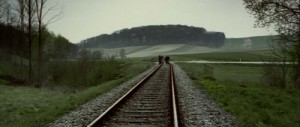
Michael Haneke’s best films — like The Seventh Continent and Code Unknown — tend to create their own world and their own rules, whereas others — like Benny’s Video, Funny Games, and this postapocalyptic tale — offer variations on films others have already made. But Haneke is still a masterful director, and his authority carries this well-acted and attractively shot account of a family from an unnamed city trying to survive in the sticks after an unspecified catastrophe. (Some have criticized the lack of explanation, but the relatively lame and familiar backstories of most such movies hardly seem an improvement.) We’ve seen much of this before, but Haneke’s theme of civilization gradually sliding away remains timely. With Isabelle Huppert and Patrice Chereau; most of the dialogue is in subtitled French. 110 min. A 35-millimeter ‘Scope print will be shown. Gene Siskel Film Center.
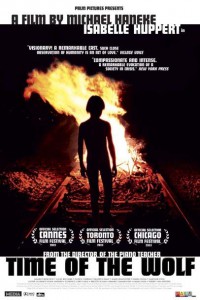 Read more
Read more
From the Chicago Reader (November 1, 1990). — J.R.
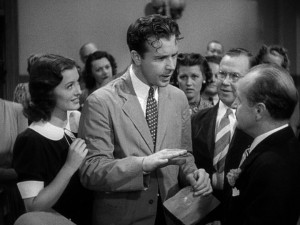
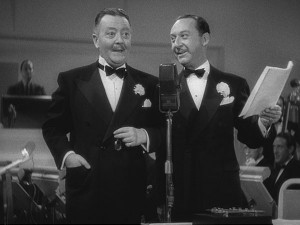
Preston Sturges’s second feature as writer-director (1940, 66 min.) is in many ways the most underrated of his movies — a riotous comedy-satire about capitalism that bites so deep it hurts. An ambitious but impoverished office clerk (Dick Powell) is determined to strike it rich in a contest with a stupid slogan (“If you can’t sleep at night, it isn’t the coffee, it’s the bunk”). He’s tricked by a few of his coworkers into believing that he’s actually won, promptly gets promoted, and proceeds to go on a shopping spree for his neighbors and relatives. Like much of Sturges’s finest work, this captures the mood of the Depression more completely than most 30s pictures, and the brilliantly polyphonic script repeats the hero’s dim-witted slogan so many times that it eventually becomes a kind of crazed tribal incantation. As usual, Sturges’s supporting cast (including Ellen Drew, William Demarest, and Raymond Walburn) is luminous, and he uses it like instruments in a madcap concerto. (JR)
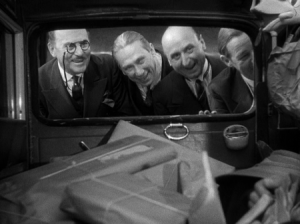 Read more
Read more
From the Chicago Reader (July 22, 1988). — J.R.
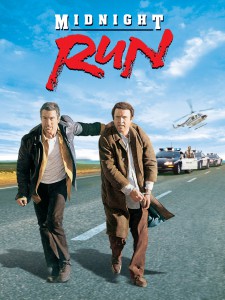
MIDNIGHT RUN
** (Worth seeing)
Directed by Martin Brest
Written by George Gallo
With Robert De Niro, Charles Grodin, Yaphet Kotto, John Ashton, and Dennis Farina.
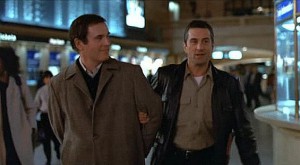
There’s a certain unavoidable imposture in the way critics (and the Academy Awards) generally break commercial movies into constituent parts and distinct contributions. To do this is to assume, first of all, that a movie’s official credits are an accurate indication of who did what offscreen, which is often not the case. It assumes further that one can easily isolate such separate aspects of movies as photography, direction, script, and acting while experiencing and judging their combined effects, the movie as a whole — it assumes, that is, that one can reverse the filmmaking process and, through powers of sheer induction, come up with precise recipes, the same way that producers and packagers do.
Like a butcher slicing up a carcass and pricing its various parts, the film reviewer typically regards each movie as a collection of individual expressions, each one to be rated on a separate evaluative scale. Of course, some of the greatest films tend to elude such divisions: how can one separate Chaplin’s acting from his directing in Monsieur Verdoux, or Tati’s directing from his script in PlayTime? Read more
From the Chicago Reader (June 1, 2001). — J.R.
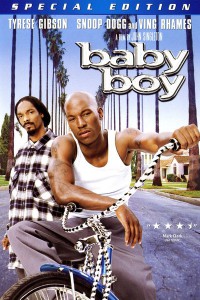
Like John Singleton’s other features, this is far from flawless; at 129 minutes it’s longer than it needs to be, and the music hits you like a sledgehammer at moments when any music at all is redundant and something of an insult. But the characters are so full-bodied and the feelings so raw and complex that I’d call this the best thing he’s done to dateby which I mean the most convincing and serious, telling us at least as much about everyday life in South Central Los Angeles as did Boyz N the Hood, his first movie. The title character, well played by Tyrese Gibson, is a 20-year-old with a pronounced Oedipus complex who lives with his 36-year-old mother (A.J. Johnson), has fathered two kids with separate girlfriends (Taraji P. Henson and Tamara LaSeon Bass), and starts to feel crowded when his mother falls for a reformed gangster (Ving Rhames, also especially good). Sexually explicit both visually and aurally, this shows rare inventiveness in exploring one character’s fantasies during an orgasm. With Omar Gooding and Snoop Dogg. (JR) Read more
Here’s a link to this short video — broadcast on March 3, 2019, and directed by Mehrnaz Saeed-Vafa — without Persian voiceovers:
https://www.facebook.com/jonathan.rosenbaum.18/posts/10156418932724926?notif_id=1551589585224363¬if_t=feedback_reaction_generic
I usually use Facebook to promote my posts here, but this time I’m doing the reverse. — J.R.
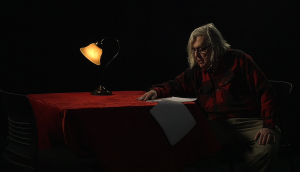
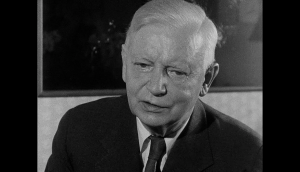
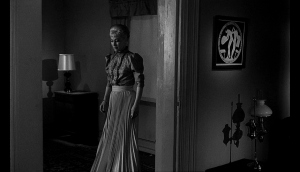
[03/03/2019] Read more
From the Chicago Reader (January 19, 1998). — J.R.
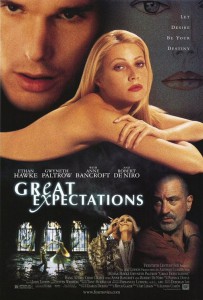
A reductio ad absurdum of the recent trend of idea-starved producers to plunder 19th-century English fiction — a movement that to my mind has justified itself only with Clueless, and in this case makes Charles Dickens look like a weak second cousin to John Grisham. In fact, so little of the novel is dealt with in this updated adaptation, and so much of that little is mauled, that it might have made more sense to do a remake of Youngblood Hawke, the sort of wet dream this movie is really craving to approximate. Ethan Hawke plays a young gulf-coast artist (formerly known as Pip) lured to the Big City, Gwyneth Paltrow plays cruel Estella (the only character allowed to keep the same name), and Anne Bancroft can’t be blamed for the incoherent version of Miss Havisham assigned to her by Mitch Glazer’s stupid script (though perhaps Robert De Niro, playing the convict, can be blamed for reminding us of Cape Fear). A horrendous effort all around, though a couple of the locations — notably a Venetian Gothic mansion on Sarasota Bay — are suggestive. Alfonso Cuaron, who did a far better job with A Little Princess, directed. Read more
From the Chicago Reader (July 1, 1989). — J.R.

Postmodernism with a vengeance. This 1988 Australian comedy made some tidal waves on its home turf — perhaps because, like the subsequent and even more enjoyable Children of the Revolution, it offers a cheerful alternative to the usual Australian self-hatred. A distant cousin of Bill & Ted’s Excellent Adventure, it has the charm and advantage of a genuine visual style of its own, both laconic and witty, as well as a likably dopey plot and cast of characters. Directed, written, coproduced by, and starring Yahoo Serious, the movie follows the adventures of a teenage Tasmanian apple farmer named Albert Einstein, who splits the atom in order to produce a beer that contains bubbles, falls in love with Marie Curie (Odile le Clezio) and follows her to Paris, meets Charles Darwin, and invents rock ‘n’ roll in the process of draining off the atomic energy in a nuclear beer keg fashioned by the villain (John Howard). Invert the auteur’s name and you get a partial notion of what he’s up to — which is not exactly serious in its own right, but is at least serious from a yahoo standpoint. 90 min. Read more
From the Chicago Reader (November 1, 1988). — J.R.
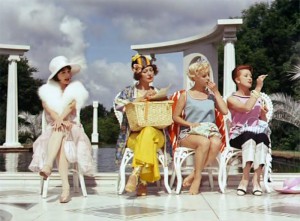
One of the rarest things in contemporary cinema — an underrated Ingmar Bergman film. Made in 1964, after The Silence, this color comedy (also known as Now About These Women) follows the mishaps of a music critic who visits a famous cellist he’s writing a book about. Ostensibly Bergman’s revenge against critics, as Pale Fire was for Vladimir Nabokov, this odd venture features Jarl Kulle, Georg Funkquist, and many of Bergman’s best actresses: Eva Dahlbeck, Harriet and Bibi Andersson, Karin Kavli, and Gertrud Fridh. (JR)
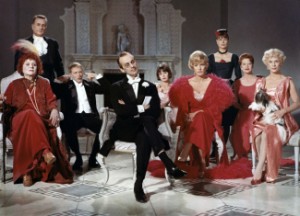 Read more
Read more
From the Chicago Reader (July 1, 1990). — J.R.
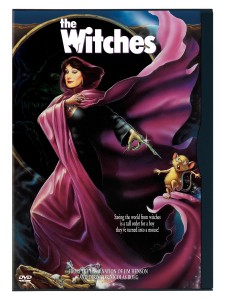
A minor but very enjoyable Nicolas Roeg fairy tale — adapted by Allan Scott from Roald Dahl’s novel, and one of the last films on which Muppet master Jim Henson worked — about a very wicked Grand High Witch (Anjelica Huston) in contemporary England with a plan to turn all that country’s children into mice. She hatches this plot at a plush seaside resort, where the other main characters are staying, including a nine-year-old American orphan (Chicagoan Jasen Fisher) — one of the witch’s first victims — and his Norwegian grandmother (Mai Zetterling). Forsaking the scattershot cutting of his usual work, Roeg seems to regard this as a relatively impersonal project, but he and the actors (especially Huston) still seem to be having a great deal of fun with it. One of many clear advantages this funny and scary 1989 fantasy-adventure has over most Disney products is its live-action visual bravado, evident in both the stylization of the witches and the profusion of mouse-point-of-view shots. PG, 91 min. (JR) Read more
















